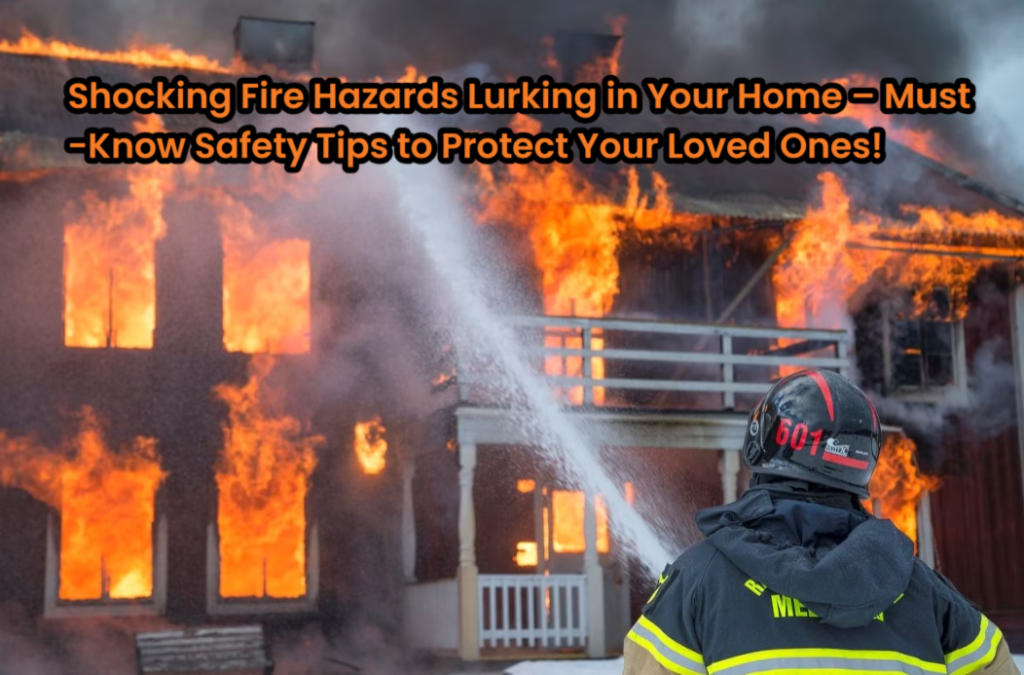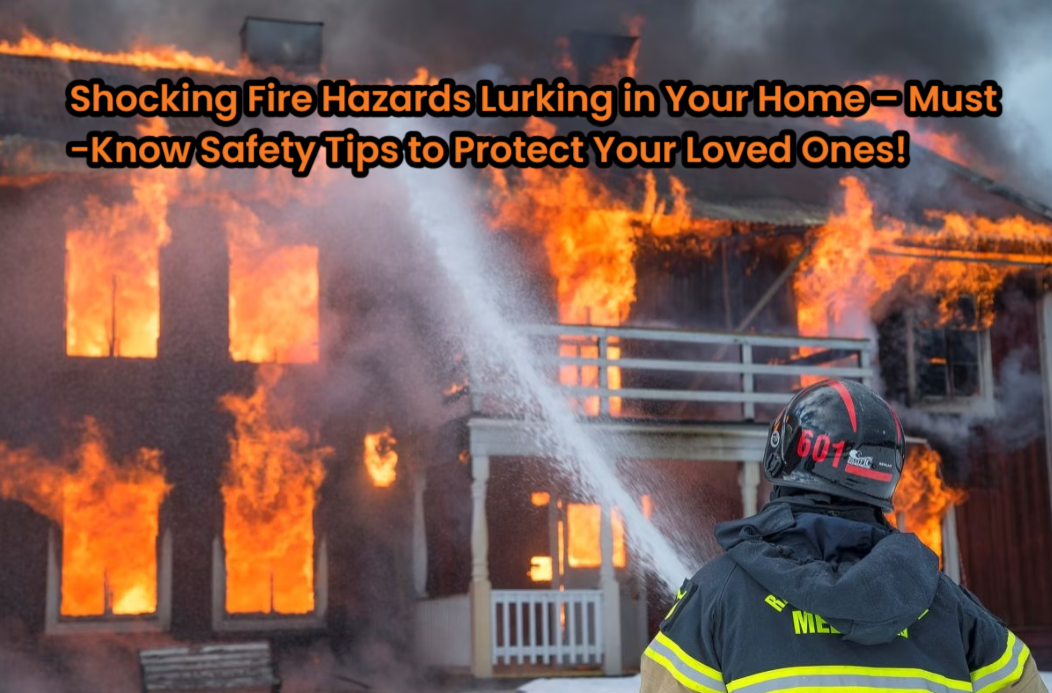Your home is not just a building; it’s your personal haven, filled with memories and cherished possessions. However, fire hazards pose a serious threat to your safety and property. Taking proactive fire prevention steps protects your home and cuts down on costs. In this blog, we’ll look at important fire prevention tips. We’ll also discuss how home insurance protects your belongings.

Why Fire Prevention is Essential
Fire prevention is crucial for ensuring the safety of lives, property, and the environment. You can lower the chance of a fire by taking preventive steps. This helps avoid loss and damage. These measures also help reduce repair costs, insurance claims, and medical bills from fire incidents. Additionally, they promote awareness and preparedness, allowing individuals to act quickly in emergencies. Ultimately, prioritizing fire prevention contributes to a safer living environment for everyone.
9 Essential Fire Prevention Measures for Your Home
If you’re concerned about fire hazards in your home, implementing the following safety measures can help prevent a disaster:
1. Install Smoke Alarms
Smoke alarms serve as your first line of defense against house fires. Place them in key areas such as the kitchen, bedrooms, hallways, and near sleeping spaces. Regularly test them to ensure they’re functioning correctly and replace batteries as needed.
2. Maintain Electrical Systems
Faulty wiring and electrical issues are major fire hazards. Hire a qualified electrician to check your home’s electrical system, outlets, and appliances regularly. Avoid overloading outlets, replace damaged cords, and upgrade your electrical panel if necessary.
3. Practice Safe Cooking Habits
Since most house fires originate in the kitchen, it’s essential to follow safe cooking practices:
- Never leave cooking unattended, especially when using high heat.
- Keep flammable objects like dish towels and curtains away from the stove.
- Use caution when frying with oil, and always have a lid nearby to smother potential flames.
- Keep a fire extinguisher in the kitchen and familiarize yourself with its use.
4. Maintain Chimneys and Fireplaces
If your home has a fireplace, ensure it’s cleaned and inspected regularly. Creosote buildup can lead to chimney fires. Also, use a fire screen to prevent sparks from escaping.
5. Store Flammable Materials Safely
Store flammable items like gasoline, paints, and cleaning supplies in a cool, ventilated space. Keep them away from heat sources. Always use their original containers and handle them with care.
6. Use Fire-Resistant Materials
Choose fire-resistant materials for building or renovating. Use non-combustible roofing, siding, and insulation. These materials can slow the spread of fire and reduce overall damage.
7. Clean Lint Filters Regularly
Dryer lint buildup is a significant fire hazard. Clean the lint filter after each use to prevent potential fires from igniting in the machine.
8. Educate Your Family on Fire Safety
Teach every family member about basic fire safety. Ensure children understand the dangers of playing with matches or lighters and establish a clear fire escape plan.
9. Have a Fire Escape Plan
Develop a fire escape plan and practice it with your family.
- Identify all exit routes.
- Pick a safe outdoor meeting spot.
- Make sure everyone knows how to call emergency services.
The Role of Home Insurance in Fire Protection
While fire prevention is crucial, unforeseen incidents can still occur. This is where home insurance plays a vital role in minimizing financial loss and providing security. Here’s how it helps:
1. Financial Protection
Home insurance helps cover damages from fires. It lets you repair or rebuild your home and replace lost items.
2. Liability Coverage
Home insurance offers liability coverage. This means if a fire in your home hurts a neighbor’s property or injures someone, you’re safe from legal and financial trouble.*
3. Peace of Mind
Knowing your home is insured gives you peace of mind, ensuring that you are financially prepared for unexpected disasters.
4. Discounts for Safety Measures
Many insurance companies give discounts on premiums for homeowners. You can get these discounts by adding safety measures like smoke alarms, fire extinguishers, and security systems.
Conclusion
Fire prevention measures are essential for protecting your home and loved ones. By following these safety practices, you can significantly reduce the risk of fire incidents. However, even with the best precautions, accidents can still happen. That’s why having a comprehensive home insurance policy is crucial—it provides financial security and peace of mind in the event of a fire.
Fire safety measures and the right insurance coverage keep your home safe. This way, you can reduce potential losses. Prevention is key, but preparation is just as important. Before purchasing a policy, use a house insurance calculator to find the best coverage for your needs.
Mut read:
- Shocking Truth About Jewellery Insurance! Must-Know Coverage, Perks & Claim Secrets
- Cyber Insurance EXPOSED: The Shocking Truth About Hacker Attacks & How to Protect Your Business!
- Shocking Truth About the Vehicle Scrappage Policy! Upgrade Your Car or Lose Big!
Frequently Asked Questions (FAQs)
u003cstrongu003eHow often should I test my smoke alarms?u003c/strongu003e
You should test your smoke alarms at least once a month and replace the batteries twice a year or as needed.
u003cstrongu003eWhat should I do if a fire starts in my home?u003c/strongu003e
If a fire starts, evacuate immediately, call emergency services, and use a fire extinguisher only if it is safe to do so.
u003cstrongu003eDoes home insurance cover all types of fire damage?u003c/strongu003e
Most home insurance policies cover fire damage, but coverage details vary. Check your policy or consult your insurer for specific inclusions and exclusions.
u003cstrongu003eHow can I reduce my home insurance premium?u003c/strongu003e
Installing smoke alarms and using fire-resistant materials can lower your home insurance premium.
u003cstrongu003eAre kitchen fires covered under home insurance?u003c/strongu003e
Yes, kitchen fires are typically covered, but intentional negligence may lead to claim denial. Always review your policy for exact details.
